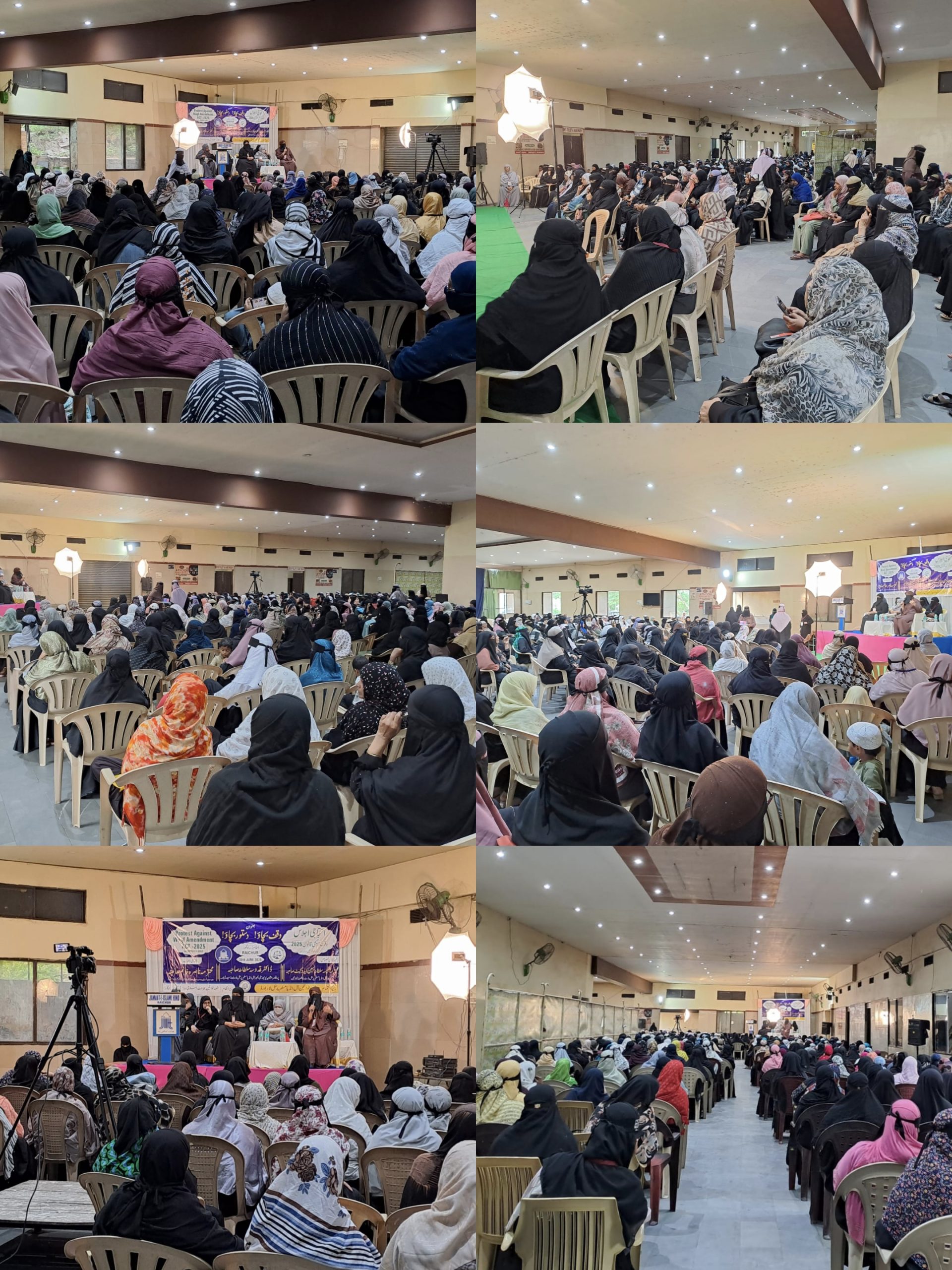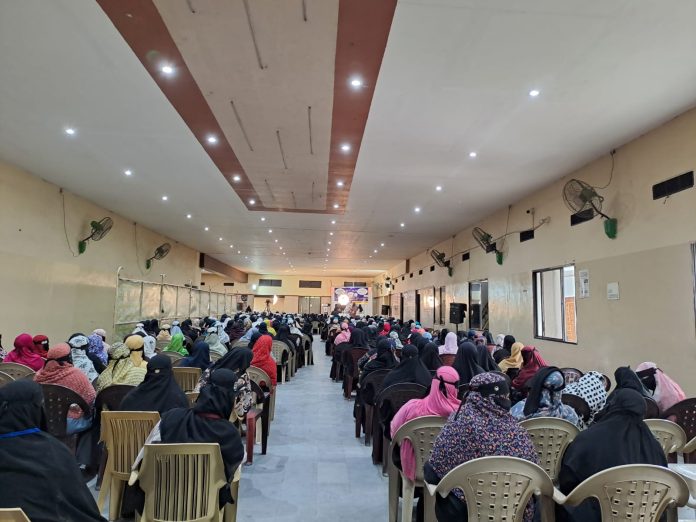Raichur | In a significant and unprecedented show of solidarity, over 1,200 Muslim women gathered at Athnoor Function Palace in Raichur on Monday to voice their strong opposition to the controversial Waqf Amendment Act. The event, titled “Save Waqf, Save Constitution”, was organized under the aegis of the All India Muslim Personal Law Board (AIMPLB) and supported by various local Muslim organizations.

The gathering was unique in its complete participation by women, who demonstrated not only organizational discipline but also intellectual engagement and a deep sense of religious and constitutional responsibility. The event was marked by passionate speeches, powerful resolutions, and a united call for justice and religious freedom.
The programme commenced with a heartfelt recitation of the Holy Qur’an by Dr. Muftiya Noor-e-Saba , a representative of Ahl-e-Sunnat wal Jamaat, creating a spiritually charged atmosphere in the hall.
Ms. Shameemunnisa Begum , Coordinator of the Women’s Wing of Jamaat-e-Islami Hind in Raichur, delivered the inaugural address. She stressed that the protest was not directed against any community, but against unjust legislation threatening the sanctity of religious trusts. “Waqf is a sacred trust. Any move to bring it under governmental control is a violation of our constitutional and religious rights,” she said.
Dr. Qudsia , a professor at Osmania University and Member of the AIMPLB, delivered a powerful keynote address. She stated, “The Waqf Amendment is not just a legal issue; it is an attack on our cultural and religious identity. Remaining silent in such times is not negligence—it is a crime.”
She emphasized the need for peaceful and constitutional resistance, declaring it a religious and moral obligation for every conscientious Muslim woman.
Advocate Jaleesa Sultana , another AIMPLB member, highlighted the unconstitutional nature of the bill, questioning why District Collectors are being given authority over Waqf matters. “Is this justice? Why are only Muslim religious affairs being targeted?” she asked, pointing out the double standards in state treatment of religious trusts.
A moving anthem by the Girls Islamic Organisation (GIO), composed by Maulana Aamir Usmani, was recited, echoing themes of resistance and unwavering faith:
Aaj bhi mere khayalon ki tapish zinda hai…
…Mere seene mein baghaawat ki khalish zinda hai.
In a bold and united move, the women’s gathering passed a resolution terming the Waqf Amendment Act as unconstitutional, un-Islamic, and a direct assault on minority rights. Ms. Umm Hafsah Zahravi of Ahl-e-Hadith presented the resolution, which was met with raised hands, chants of “Allahu Akbar”, and collective affirmation from the audience.
The resolution declared that the amendment violates Articles 25 to 30 of the Indian Constitution, undermines the autonomy of religious institutions, and threatens communal harmony in a diverse society. It also called upon media, civil society, and rights-based organizations to stand in support of the cause.
Delivering the concluding address, Ms. Nasira Khanam , former Assistant Coordinator of Jamaat-e-Islami Hind Women’s Wing, stated that Waqf is not just a Muslim issue but a matter of protecting Islamic heritage and religious independence. She urged women to take the message back to their homes and communities, raising children who are aware and ready to defend their faith.
The event concluded with a heartfelt du‘a (supplication) led by Ms. Saira of the Tablighi Jamaat, seeking Allah’s help in protecting the Ummah’s identity and institutions.
In her vote of thanks, Ms. Shahnaz Latif , the programme convener, expressed gratitude to the participants and declared that this gathering marks the beginning of a long and sustained struggle for truth and justice.
Resolution Summary:
1. The Waqf Amendment Act violates constitutional protections guaranteed under Articles 25–30.
2. It aims to unjustly place centuries-old Muslim religious, educational, and welfare services under government control.
3. It disregards Shari‘ah principles and constitutional provisions.
4. It poses a threat to harmony in a pluralistic society.
5. An appeal was made to civil society and media to raise their voice in defence of constitutional values.




